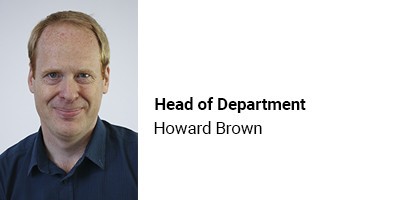History (Modern) A Level
Qualification: GCE A Level in History
Exam Board & Specification Code: Pearson; 9HI0; Specification
Course Entry Requirements: 4 in English Language GCSE
Please make sure that you have understood the overall entry requirements to study at BHASVIC. These are available here and outline the GCSE grades you need to take up one of the Study Programmes at the college.
Length and size of qualification: 2 year single course
Timetable hours: 4.5 hours per week
Assessment method: 3 exams of varying lengths plus coursework
BHASVIC Department: Humanities
What will I study?
Common to each of our History courses are narratives that are full of intrigue, heroism, conflict and struggle. You will investigate some of the greatest personalities and events of the past. Each of these topics illuminates the present whilst being fascinating in their own right. On our Modern History option you will study “Democracy, Dictatorship and Social Change in the Modern World”: Russia from Lenin to Yeltsin 1917-91, Mao’s China 1949-76, Protest, Agitation and Parliamentary Reform in Britain c.1780-1928 and the Coursework: The Origin of the Cold War. The course is 20% coursework, and 80% external exam.
Is this course right for me?
Do you want to discover more about the most significant events and people in history? Are you fascinated about what we may able to learn from the past? Do you enjoy discussion, debate, reading and research? History encourages independent thinking and really suits students who enjoy reading, questioning and debate. Lessons will mainly be seminar style and your learning is supported by foreign and local trips, university study days and student conferences. History is even more engaging when it is seen in action. We invite visiting academics, take trips to local historical sites such as Battle, Pevensey and the Banqueting House; arrange study and lecture conferences; visit universities and their archives and other major museums such as the National Portrait Gallery, British Army Museum and Mary Rose. We also have a fantastic history of foreign travel, including recent trips to China, Russia, Germany, Italy, and Sicily.
Where next?
History is a highly esteemed qualification as it develops rigorous analytical, evaluative and communication skills which are transferable to further study of the subject. This may be through university, further education, direct entry into apprenticeships or work. History is very highly regarded by universities and employers for its rigour and the skills that you gain can take you in many varied and interesting career directions including academia, the media, business and the legal professions. Jobs which directly relate to the subject might include Heritage Manager, Conservation Officer, Museum Education or Curation and Teaching. Jobs where this subject would be useful might include Archivist, Journalist, Civil Service, Information Officer, Solicitor or a PPC Specialist. Useful websites to research careers and wider progression options could include the Historical Association, National Trust, All About Careers and The Apprenticeship Guide.
Apply View Department